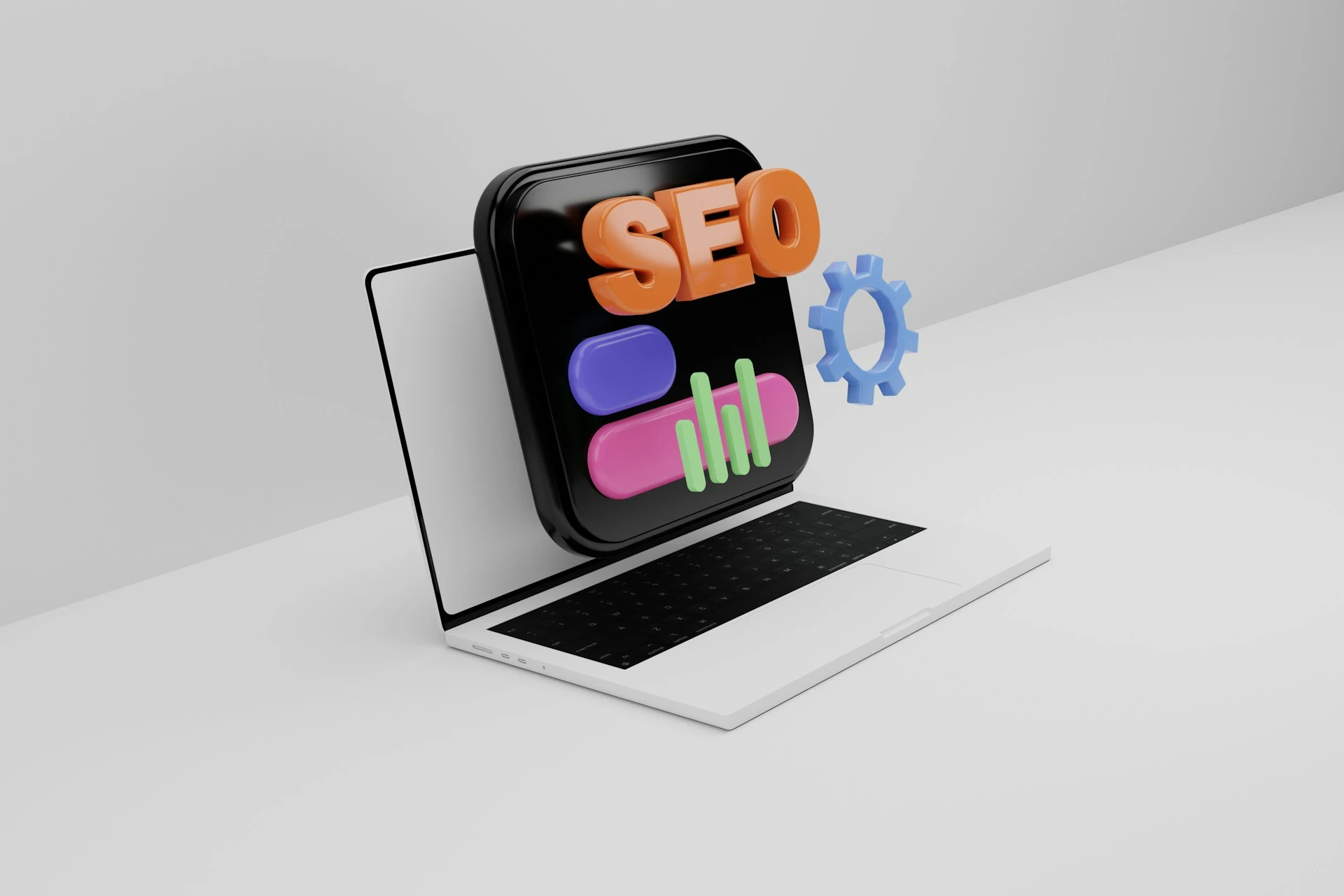In today’s world, digital transformation is changing the commercial landscape. So, is ecommerce worth it for your business? It’s crucial to weigh the benefits and drawbacks. This guide provides a clear analysis of ecommerce viability. It includes innovative strategies and insights. Whether you’re an established business or a new entrepreneur, understanding ecommerce is crucial. This knowledge will help you make informed decisions. Furthermore, it will enable you to seize new opportunities.
Related: Dropshipping vs Ecommerce: Which Model Suits You Best?
Table of contents
What Is Ecommerce, and Is It Worth It?
Ecommerce, or online shopping, refers to buying and selling goods or services over the internet. It plays a vital role in modern business by offering flexibility across time zones and geographic boundaries. Moreover, it continues to shape how businesses operate globally.
The Technologies Powering Ecommerce
Ecommerce relies on several key technologies to operate smoothly. For example:
- Mobile commerce enables shopping on smartphones and tablets, making it easier for consumers to shop anytime, anywhere.
- Electronic funds transfer (EFT) facilitates secure payment transactions, which is crucial for building customer trust.
- Supply chain management ensures products are delivered efficiently, while also reducing delays.
- Internet marketing helps businesses reach customers online and expand their audience.
- Online transaction processing and electronic data interchange (EDI) streamline purchasing and invoicing, creating a more seamless customer experience.
- Inventory management systems keep stock levels organized and updated, thus preventing stockouts or overstocking
In fact, the global ecommerce landscape is growing rapidly. According to our research, global retail ecommerce sales reached an estimated $5.8 trillion. Moreover, projections indicate a 39% growth in the coming years. By 2027, sales are expected to surpass $8 trillion.
Factors Driving Growth:
- Increased internet access and mobile commerce.
- Rising consumer preference for online shopping.
- Technological advancements pushing businesses to adopt digital platforms.
As a result, ecommerce offers exciting opportunities with its rapid growth and strong projections. Similarly, digital marketing side hustles that have evolved into full-time businesses showcase the potential of this thriving space. For anyone wondering, “Is starting an ecommerce business worth it?” the outlook is undoubtedly optimistic.
How Does Ecommerce Work?
E-commerce businesses work by seamlessly connecting businesses and customers online through a digital framework. So, here’s how it works step-by-step:
- Online Storefronts: First of all, businesses showcase their products or services through an online store or marketplace, making it easy for customers to browse. Moreover, advanced search tools and personalized recommendations help customers quickly find what they need.
- Shopping and Checkout: Next, customers add items to a virtual cart and proceed to checkout. Payments are processed through secure systems using credit cards, digital wallets, or even cryptocurrencies, ensuring financial information stays protected.
- This answers the question many ask: “Is ecommerce legit?” By using secure systems, it ensures customers’ trust.
- Order Management: After a purchase is made, e-commerce platforms sync with inventory systems to update stock levels in real time. Then, the system triggers order fulfillment, starting the packaging and shipping process.
- Delivery: Furthermore, advanced logistics handle the shipment and delivery of products, ensuring customers receive their orders efficiently. For many, this efficiency supports answering whether “Is an ecommerce store worth it?”
- Customer Management: Lastly, customer relationship management (CRM) systems keep track of customer interactions, providing insights into buying habits and improving follow-up support.
All in all, this streamlined process ensures e-commerce runs smoothly, offering convenience and efficiency for both businesses and shoppers. So, is an ecommerce store worth it? With its ability to save time, simplify processes, and connect with a global audience, many would say it absolutely is.
Different Types of Ecommerce Businesses
The main types of ecommerce are B2B (business to business), B2C (business to consumer), C2C (consumer to consumer), and C2B (consumer to business). Let’s explore each in depth:
B2B (Business to Business)
Definition: B2B ecommerce involves transactions between businesses. This model focuses on selling products or services from one business to another.
Examples in Use: For instance, companies buy raw materials, components, or services from other businesses. A car manufacturer may purchase tires, glass, and rubber hoses from different suppliers.
Furthermore, sourcing from specialized suppliers ensures higher quality and better pricing. As a result, B2B commerce forms the backbone of many manufacturing processes.
Existing Platforms: Popular B2B platforms include Alibaba, TradeKey, and Amazon Business.
Key Characteristics:
- Bulk Orders: B2B transactions often involve large quantities, which makes this model highly efficient for businesses.
- Long-Term Contracts: Businesses tend to establish long-term relationships and contracts. Consequently, this ensures consistent supply and strengthens partnerships.
- Complex Negotiations: Pricing and terms are often negotiated individually, which requires businesses to dedicate time and effort. However, these negotiations often lead to tailored agreements that benefit both parties.
- Specialized Products: Products are often tailored to meet specific business needs, which adds value to the transaction.
When considering these aspects, you might ask yourself, “is an ecommerce store worth it?” By understanding the mechanics of B2B ecommerce, you can better evaluate whether this model aligns with your goals.
B2C (Business to Consumer)
Definition: B2C ecommerce, which is one of the most common models, involves transactions between a business and individual consumers. Specifically, this model focuses on selling products or services directly to end-users. But is ecommerce worth it for businesses looking to expand their reach?
Examples in Use: For instance, online retail stores like Amazon and Walmart sell goods directly to customers. Therefore, this model thrives on the ability to cater to individual needs.
Existing Platforms: Platforms such as Shopify, WooCommerce, and Magento are widely used for B2C operations.
Key Characteristics:
- Consumer-Oriented: This model focuses entirely on individual consumer preferences and needs, which helps businesses build strong relationships.
- Smaller Order Sizes: Typically, it involves single-item purchases; however, high transaction volume compensates for this.
- High Volume: Due to a broad customer base, there’s a large number of transactions. Consequently, businesses can scale faster.
- Digital Marketing Focus: Since competition is fierce, emphasis is placed on SEO, social media, and digital advertising to attract and retain customers.
C2C (Consumer to Consumer)
Definition: C2C ecommerce facilitates transactions between private individuals, often through a third-party platform. This model raises an important question: is ecommerce worth it when individuals interact directly?
Examples in Use: For instance, online marketplaces like eBay, Craigslist, and Facebook Marketplace enable users to buy and sell directly to each other.
Existing Platforms: Notably, platforms like eBay, Etsy, and Poshmark are prominent C2C options. Moreover, they provide secure environments that help answer whether is ecommerce legit for users.
Key Characteristics:
- Peer-to-Peer Transactions: Individuals sell directly to other individuals, creating a personalized shopping experience.
- Variety of Goods: In addition, these platforms offer a wide range of products, often including second-hand or handmade items.
- Community-Based: Furthermore, user reviews and ratings play a crucial role in ensuring trust and transparency.
- Flexible Pricing: Finally, prices are often negotiable between buyers and sellers, making this model appealing for many.
C2B (Consumer to Business)
Definition: C2B ecommerce allows consumers to sell products or services to businesses. As a result, this model empowers individuals to connect directly with companies.
Examples in Use: For instance, freelance platforms like Upwork and Fiverr let individuals offer their services to companies. Moreover, these platforms facilitate smooth interactions between freelancers and businesses. Consequently, this creates a mutually beneficial relationship.
Existing Platforms: Upwork, Freelancer, and 99designs are well-known C2B platforms. Therefore, if you’re wondering is ecommerce worth it, these platforms are clear examples showcasing how profitable and innovative this model can be.
Key Characteristics:
- Consumer Empowerment: Consumers set the terms and conditions of the transaction, enabling them to maintain control.
- Service-Oriented: Typically, this involves services like freelance work, market research, or content creation.
- Dynamic Pricing: Consumers usually set prices based on their offering’s value, which often leads to more personalized transactions.
- Innovation-Driven: Not only does it encourage unique and innovative solutions from individuals, but it also helps businesses find tailored services more efficiently.
Therefore, each ecommerce model caters to specific market dynamics and customer interactions. Understanding these models helps businesses tailor strategies, foster growth, and enhance customer engagement.
Advantages of Ecommerce for Customers
- Convenience of Online Shopping: One of the most significant benefits of selling online is convenience. For instance, consumers can shop online from the comfort of their homes, 24/7. Since they are no longer bound by the operating hours of physical stores, customers can make purchases at any time, which leads to increased satisfaction and loyalty.
- Ease of Comparison: In addition, ecommerce platforms allow customers to easily compare products, prices, and reviews. As a result, it becomes simpler to make informed purchasing decisions. This transparency empowers consumers to find the best deals and high-quality products, further boosting trust in online shopping.
- Wide Product Selection: Moreover, online stores often offer a more extensive range of products than physical stores. Whether you’re looking for niche items or the latest trends, ecommerce platforms cater to a wide variety of preferences.
- In-depth Product Information: Additionally, detailed product descriptions, high-resolution images, and customer reviews provide comprehensive information about products. As a result, this level of detail helps customers understand the features and benefits of each item, reducing the likelihood of returns and increasing satisfaction.
- Lower Prices: Finally, ecommerce businesses can often offer lower prices due to reduced overhead costs compared to brick-and-mortar stores. Furthermore, online sales, discounts, and loyalty programs make shopping online even more affordable for consumers.
Advantages of Ecommerce for Businesses
- Global Reach: Ecommerce transcends geographical boundaries, allowing businesses to reach a global audience. Moreover, with the right marketing strategies, even small businesses can tap into international markets, significantly expanding their customer base. So, is ecommerce worth it? For those seeking global exposure, the answer is clear.
- Cost Efficiency: Running an online store typically involves lower operational costs than maintaining a physical storefront. For instance, savings on rent, utilities, and in-store staff can be redirected into other areas such as marketing and product development.
- Data Analytics: Ecommerce platforms provide valuable data analytics, enabling businesses to gain insights into customer behavior, preferences, and purchasing patterns.
- 24/7 Availability: An online store is always open, providing customers with round-the-clock access to products and services. Therefore, this availability can lead to increased sales and improved customer satisfaction.
- Enhanced Customer Engagement: Digital marketing tools and personalized communication channels allow businesses to enhance their marketing and sales strategies and engage with customers more effectively. For example, email marketing, social media interaction, and targeted ads contribute to building strong customer relationships and brand loyalty.
Disadvantages of Ecommerce for Businesses
- Increased Competition: Ecommerce’s global reach means businesses face tough competition. Standing out in a crowded market can be challenging, but building a successful online store is essential. Is ecommerce worth it? That depends on how well you can adapt and innovate in this competitive space.
- Technical Challenges: Setting up and maintaining an ecommerce platform requires technical expertise. For instance, businesses must handle tasks like website development and cybersecurity. Therefore, investing in technology and skilled personnel is crucial to ensure smooth operations.
- Security Risks: Ecommerce platforms, unfortunately, are susceptible to security breaches, including hacking and data theft. Consequently, protecting customer information and maintaining robust security protocols are critical to avoiding reputational damage and financial loss.
- Logistical Complexities: Managing logistics, including inventory, shipping, and delivery, can be both complex and costly. Hence, ensuring timely and efficient fulfillment is essential to maintaining customer satisfaction. Furthermore, streamlining these processes can significantly impact your success in this industry.
- Customer Trust: Building trust with online customers is crucial, particularly for new or lesser-known brands. For example, providing excellent customer service, transparent policies, and secure payment options can help establish credibility and trust.
Disadvantages of Ecommerce for Customers
- Potential Security Risks: Customers may hesitate to share personal and financial information online because of the risk of cyberattacks and data breaches. Therefore, ensuring secure transaction processes and protecting customer data are paramount.
- Lack of Personalized Assistance: Unlike physical stores, online shopping lacks face-to-face interaction with sales associates who can offer personalized assistance and advice. As a result, it can be challenging for customers to navigate complex purchasing decisions. However, providing live chat support or AI-driven recommendations can help bridge this gap.
- Shipping Delays and Issues: Despite advancements in logistics, shipping delays and other issues can still occur, which often leads to customer frustration. To address this, clear communication and efficient problem-solving are necessary.
- Difficulty in Product Evaluation: Online shoppers cannot physically inspect products before purchasing, which can lead to uncertainty about quality and suitability. To counter this, high-quality images, detailed descriptions, and customer reviews are essential.
- Return and Refund Processes: Returning products and obtaining refunds can often feel like a hassle for customers. For this reason, simplifying return policies and providing excellent customer support can significantly improve the overall shopping experience.

What Are the Most Profitable E-commerce Products to Sell?
Electronics and Cutting-Edge Gadgets
The demand for the latest electronics and gadgets continues to grow, making them a lucrative category for ecommerce businesses.
Fashion and Trendsetting Apparel
Online fashion retail remains a popular and profitable segment, catering to diverse styles and trends.
Beauty and Personal Care Essentials
Consumers frequently purchase beauty and personal care products online, driven by convenience and a wide range of options.
Homeware and Stylish Decor
Homeware and decor items are increasingly popular in the ecommerce space, with customers seeking stylish and practical products for their homes.
Health and Wellness Innovations
Health and wellness products, including supplements and fitness equipment, have seen significant growth in the ecommerce sector.

How to Promote Your Online Store
Search Engine Optimization (SEO): Optimize your website for search engines to increase organic traffic.
Content Marketing: Create valuable content that resonates with your target audience and drives engagement.
Social Media Marketing: Leverage social media platforms to reach and interact with potential customers.
Email Marketing: Build and nurture relationships with customers through targeted email campaigns.
Influencer Partnerships: Collaborate with influencers to expand your reach and build trust with your audience.
Related: The Difference Between a Marketing Strategy and Marketing Plan.

How to Start Building a Profitable Ecommerce Business
Starting an ecommerce business involves careful planning and strategic execution. Here are some steps to get you started:
Market Research: Understand your target market and identify profitable niches.
Business Plan: Develop a comprehensive business plan outlining your goals, strategies, and financial projections.
Choose a Platform: Select an ecommerce platform that suits your needs and budget.
Product Sourcing: Decide whether to manufacture, wholesale, or dropship your products.
Website Development: Build a user-friendly and visually appealing online store.
Marketing Strategy: Implement a robust marketing strategy to attract and retain customers.
Customer Service: Provide exceptional customer service to build trust and loyalty.

In Conclusion: Is Ecommerce Worth It in 2024?
Ecommerce offers many opportunities for entrepreneurs and businesses in 2024. There are challenges to overcome, but the benefits are significant. For example, ecommerce allows for global reach, cost efficiency, and better customer engagement. Thus, it is a compelling option for many.
By understanding ecommerce intricacies and using the right strategies, you can build a profitable online business. Ready to dive into ecommerce? Take the first step towards building your successful online store today. Optimize your marketing strategies and understand your target market. As a result, your business will thrive in the digital landscape.
So, is ecommerce worth it? Absolutely!






Leave a Reply